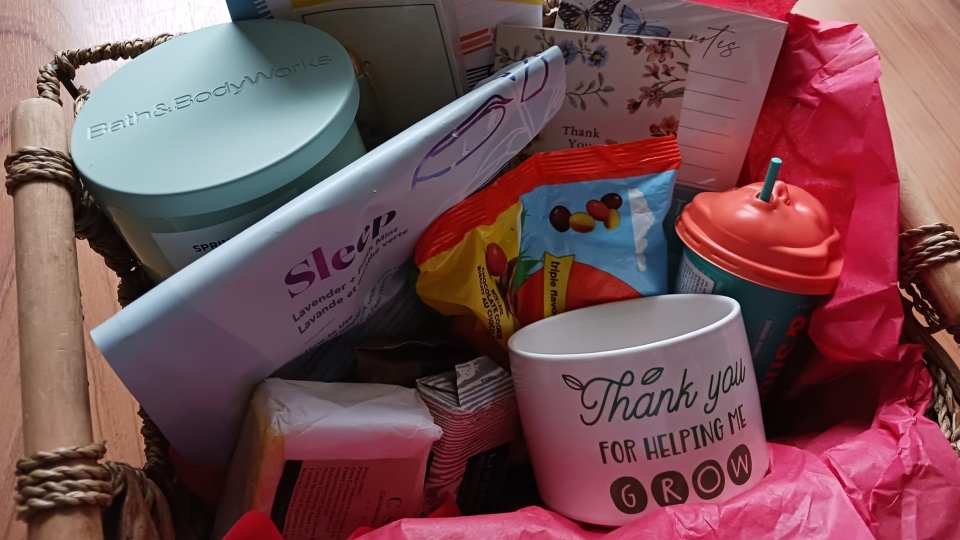SOTL Research Project Spotlight: Incorporating Praxis into Child and Youth Care Post-Secondary Education

By Esha Rana
The practice and profession of teaching is critical to the future of the world. Young and old people rely on teachers to guide them and help them navigate new territory. Seeing the importance of teaching, one of the best things that educational institutions can do is encourage research into teaching practices so that faculty and students can benefit from the discovery and/ or the implementation of improved teaching and learning practices in the classroom. Here at the Office of Research & Innovation at Humber College, one of the avenues we do that through is the Seed and Cultivate grant under the Scholarship of Teaching and Learning (SoTL).
Melanie Zuzarte, M.A., RSW, is one such faculty member who was inspired by the prospect of conducting research in the classroom. Her project “Incorporating Praxis into Child and Youth Care Post-Secondary Education,” received the Seed and Cultivate grant. Praxis here is defined as the weaving together of knowledge and action to create theory-in-action. The project started in 2021. Phase 1 of the project wrapped up in Spring/Summer 2022, and over the past few months, Melanie has been working on an academic journal submission.
When asked the reason for choosing this specific topic, she shares her why: “As a result of COVID-19 precautions, child and youth care educators may have faced challenges to demonstrate relational support through online course delivery with their students that they typically demonstrate in campus classrooms. I was curious about the participant’s online learning experiences during the pandemic.”
Purpose of the project
The project aims to uncover how child and youth care educators within the Faculty of Social & Community Services at Humber College may creatively weave the seven elements of caring relationships (trust, attention, empathy, availability, affirmation, respect and virtue) into the pedagogy.
The project will also consider how child and youth care educators may further inspire their students to experience praxis within the lifespace of an online classroom, which may support them in demonstrating how to practice presence, meaning, rhythm and atmosphere in their future professional practice.
“My hope is that this project inspires child and youth care educators to collaborate with their students in bringing to life themes of daily youth work, such as presence, meaning, rhythm and atmosphere,” Melanie shares. “When students immerse themselves within these themes within an online classroom, they may feel compelled to weave them into their relationships with youth in the field.”
The project can also contribute to the state of knowledge regarding post-secondary academic programs and the experiences of child and youth care students.
The research process
In Phase 1, Melanie gathered data from Humber College’s Child and Youth Care students to illustrate, using a humanistic lens, to child and youth care educators how students would like to experience elements of care in the classroom. The data was collected through focus groups where participants were asked to reflect on the elements of a caring relationship.
In Phase 2, child and youth care educators could propose pedagogical strategies when weaving in elements of care into praxis within the learning lifespaces which, in turn, may inspire child and youth care students’ future clinical practice.
The data and proposed pedagogical strategies will then be analyzed by Melanie and curated in a ‘Care Workbook’ for the academic practice of child and youth care educators. The workbook will contain step-by-step suggestions for supporting students using the elements of a caring relationship, brainstorming worksheets, reflection templates and weekly module pedagogical tools that can be used to inspire presence, meaning, rhythm and atmosphere between child and youth care educators and students.
Reflecting on the research process, Melanie notes that she was surprised by the seemingly seamless osmosis of the elements of caring relationships. “When I modelled the elements within my pedagogical plan, my students benefitted and soaked in the themes of trust, empathy, affirmation, availability and respect,” she says. At the end of the semester, they gifted Melanie a self-care basket of treats, including a candle, bath salts, candy, pens and journal paper. The students noted that they were replicating the abundance of care that Melanie brought to the classroom.

The journey was not without its challenges though. Conducting research during the pandemic was difficult. “Curating and writing the manuscript took a lot of time in between grieving the loss of my father, full-time work and family responsibilities,” Melanie recalls. “A humbling moment was illustrated during the focus groups where I discovered that participants revealed that they shared similar emotional, physical and mental challenges as their instructors over the pandemic.”
A milestone amidst the challenges was the discovery that students were keen to learn from their mistakes and participate in second chances when given the opportunity by their instructors. Participants expressed that they appreciated the gesture as it illustrated their instructor’s care towards their academic success.
The research team
Melanie is the Principal Investigator of the project and holds a Master of Arts in Child and Youth Care from Toronto Metropolitan University (formerly Ryerson University). She has worked as a registered social worker with a non-profit for more than two decades and holds instructor posts with Humber College’s Faculty of Social & Community Services and Toronto Metropolitan University. Her clinical and research skills have melded over the past decade whilst in practice. As a result, she was motivated to weave clinical skills—specifically, narrative counselling, strength, and trauma-informed approaches—into research to further child and youth care scholarship.
Carolina Borja was the research assistant for the project and was a student in the Research Analyst Graduate Certificate Program at Humber College at the time. Her areas of expertise include quantitative research methods, qualitative research methods, spreadsheet & database management, research ethics, research & survey design, quantitative analysis software, and research project management. Carolina analyzed the data and transcripts that previous RAs had compiled from the interviews and helped with editing the final paper.
Speaking about her experience of working on the project, Carolina shares, “I learned how to not only communicate in a literal sense through virtual meetups/email correspondence but also how to communicate to express my own ideas. Imposter syndrome is a hindrance to a lot of students and those new to the research field. Fortunately, I had someone like Melanie who welcomed my ideas and encouraged me to explore them through a collaborative environment. I’ve been learning to speak up a lot more in a new chapter of my life, and I could say that a big part of this is thanks to this project.”
On research
For Melanie, research is a forward-thinking approach to reflect and engage in new and innovative ways of knowing, being, and doing.
As a first-time researcher, she recognizes that the process can be intimidating. What helps is finding a gap in the research that you feel passionate about and considering that area as your starting point toward social change. “There is a lot of heavy lifting at the commencement of the research process—treat this time as a treasure hunt,“ she advises. “When you find an area of research that can benefit from your passion, optimism, and drive, your research project will not feel like work.”
As part of the SoTL Researcher Spotlight series, a shorter version of this article featuring a Q&A with Melanie Zuzarte was published on the Humber Research & Innovation website.
Read the article “SoTL Researcher Spotlight: Melanie Zuzarte, M.A., RSW” to learn more.

